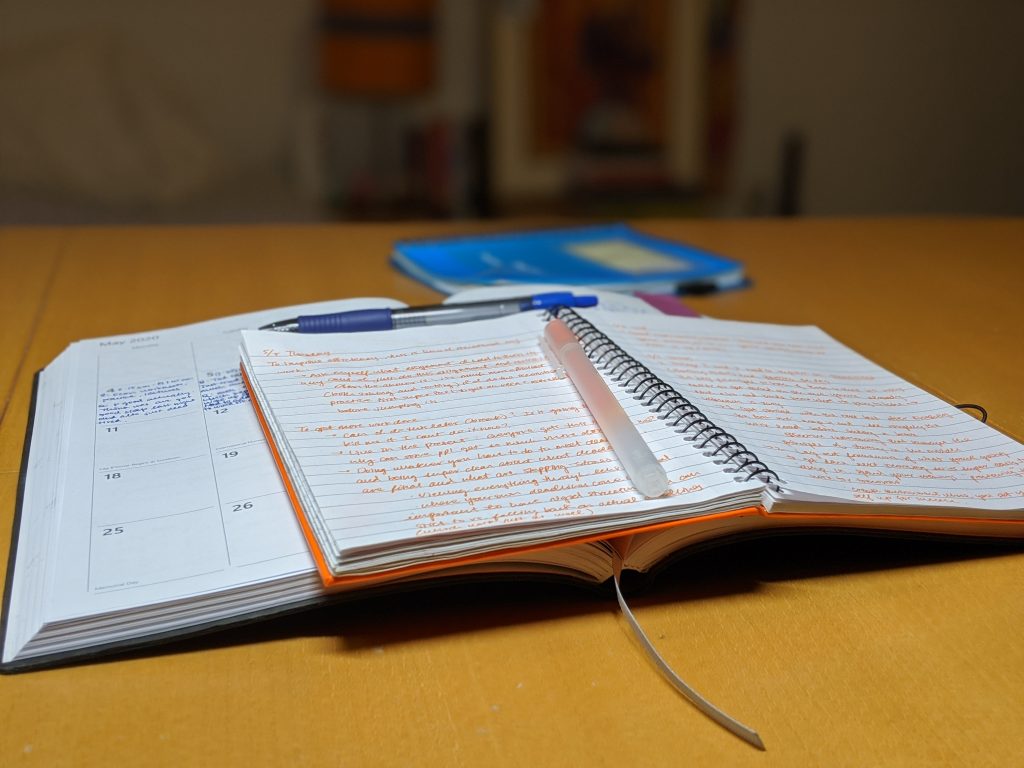As a student who held onto prospects of prom and graduation events like life vests to get through challenging periods of swirling deadlines and overwhelming feelings of anxiety, the idea of second semester senior year was always something special. Just three months ago, my vision for these weeks was crystal clear: They were a reprieve of responsibility and a chance to be a carefree kid again, right before taking another step into the adult world. Instead, it’s been a blur of complicated emotions and exceptional circumstance.
For me, this stark departure from expectation has been the most challenging to adjust to. You might not be a graduating high school senior, but I’m sure you can relate to these feelings of angst. The gap between “what was supposed to be” and “what is” creates an uncomfortable mental hurdle. I was frantic for comforting answers, so I turned to the internet.
“You realize your plan has changed but you don’t yet know what it has changed to,” blogger Rocky Ullah acknowledges. “This is the key turning point in your journey. Stop thinking about changes as a loss and start focusing on the opportunity to create from the unknown … you need to start focusing on the opportunity that this presents you with.”
The gap between “what was supposed to be” and “what is” creates an uncomfortable mental hurdle.
Story continues below advertisement
I began my own process of reframing with a small notebook I had used to write down important things I wanted to do, but never felt like I had time for. In it was everything ranging from “become a better cook” to “fix why you’re so tired every day.” Having a list of personal goals, I spun solitude as an opportunity to better understand and improve myself. In contrast with the hustle-and-bustle mindset we are often engulfed in, I found it tremendously grounding to pivot the focus to myself.

For the past month, I’ve focused on one or two things each week. The first week was dedicated to improving my evening and morning routines. The second week honed a mindfulness routine. From weeks three to four, I cooked a meal at least every three days.
This small-steps approach has had surprising cumulative effects. If I found the goal of getting daily exercise too lofty, I lowered the bar to every other day. The most important aspect of this self-therapy was having a chance to reflect at the end of the week. Seeing one aspect of myself better compared to seven days prior was immeasurably rewarding after weeks of floating around unanchored. The small sense of personal pride I derived from these mini accomplishments was a mooring that helped focus my mind and attitude on the present.
“As human beings, we crave security,” health writers Lawrence Robinson and Melinda Smith write. “We want to feel safe and have a sense of control over our lives and well-being. Fear and uncertainty can leave you feeling stressed, anxious, and powerless over the direction of your life. It can drain you emotionally and trap you in a downward spiral of endless ‘what-ifs’ and worst-case scenarios about what tomorrow may bring.”
In a world fraught with uneasiness, knowing when and how to hit the reset button has become an invaluable skill. If there’s a silver lining to this pandemic, I hope it’s a poignant reminder that taking it slow — and not revving our engines harder — is the best remedy when expectations and circumstances speed out of our control. And now, when so little feels like it’s in our hands, smoothing out the wrinkles that we can reach is invariably the best step forward.
Related stories
PAUSD officially closed for rest of school year
PAUSD graduation ceremonies pushed to December
District admins propose online and in-person learning for fall



